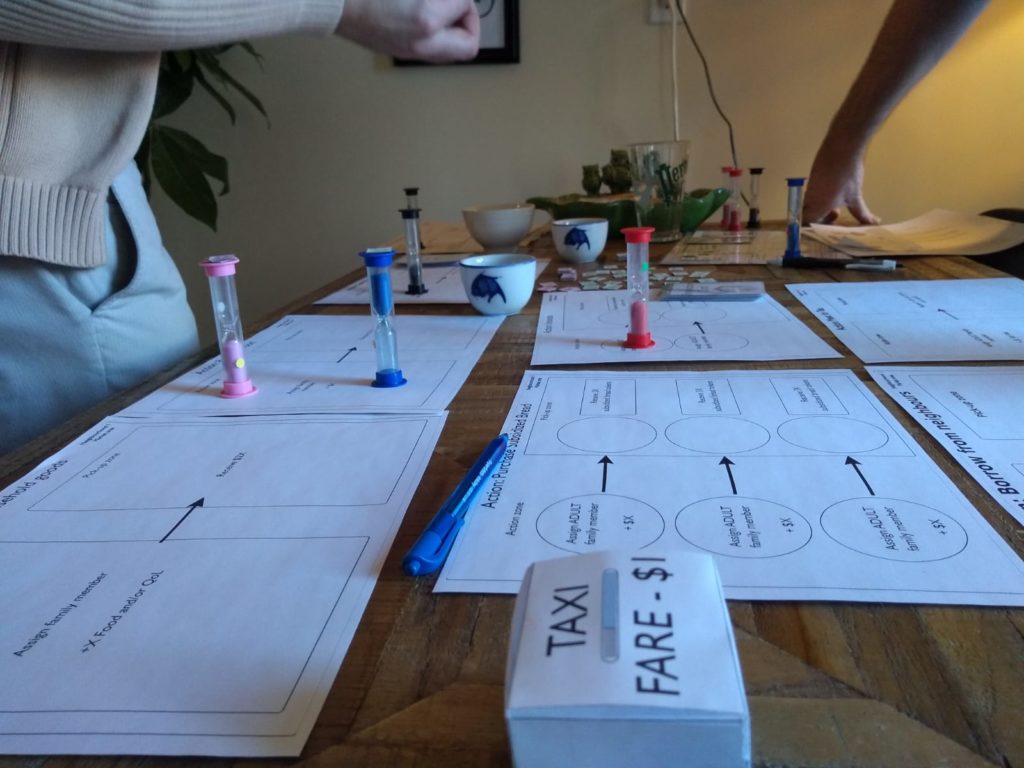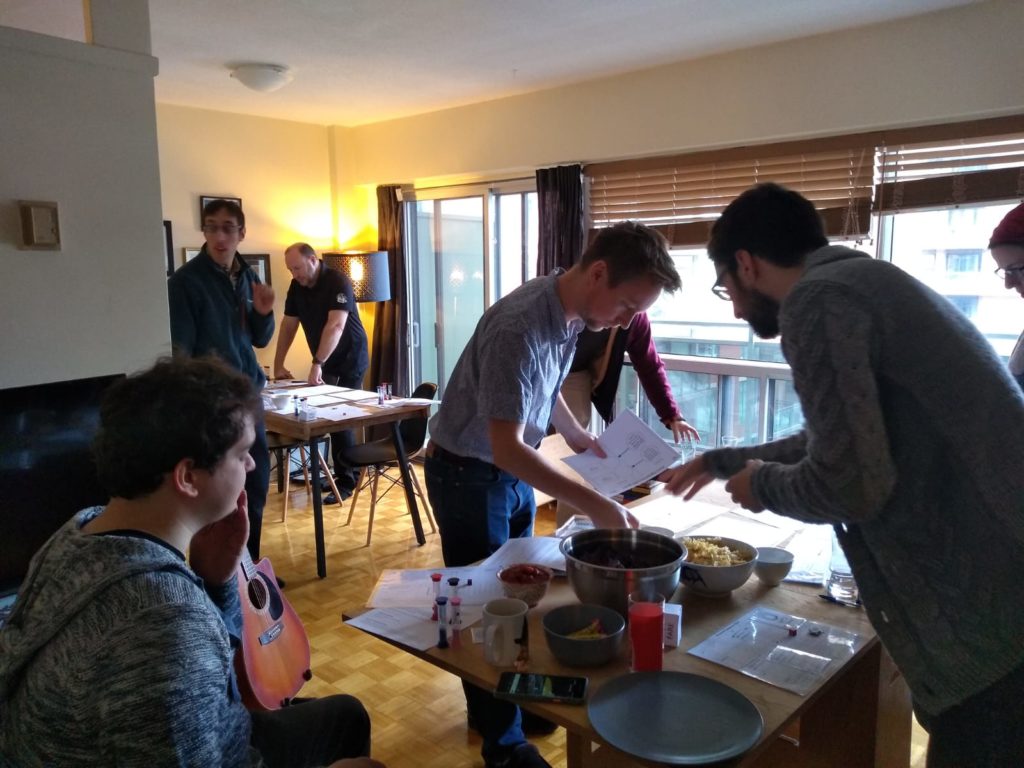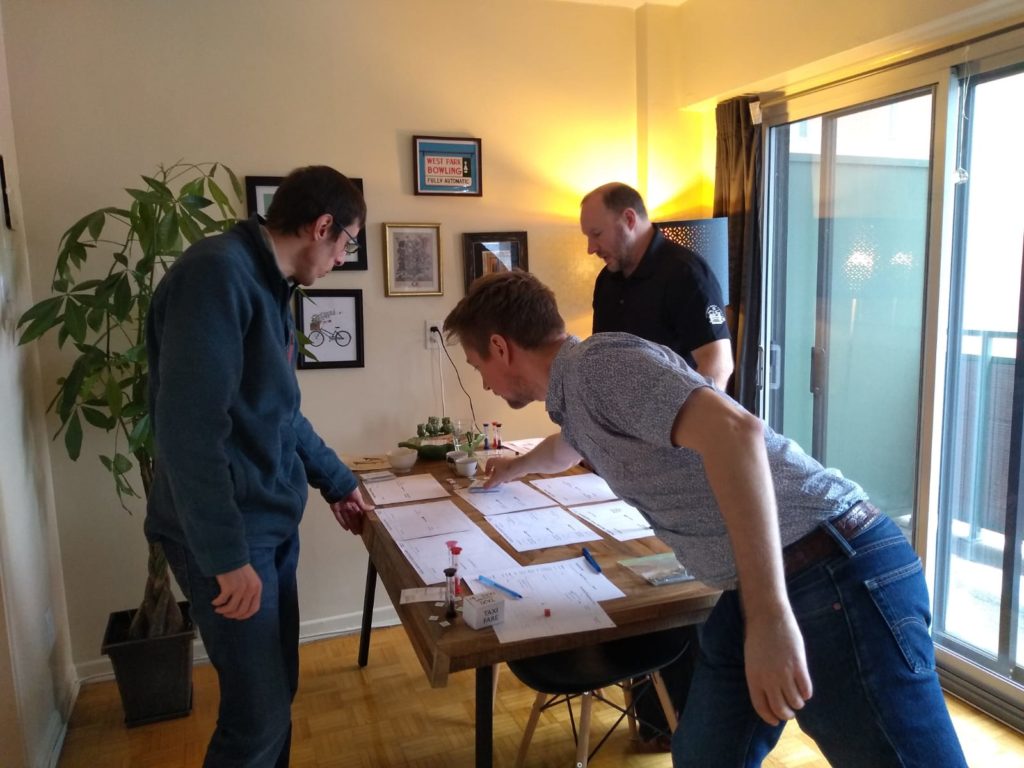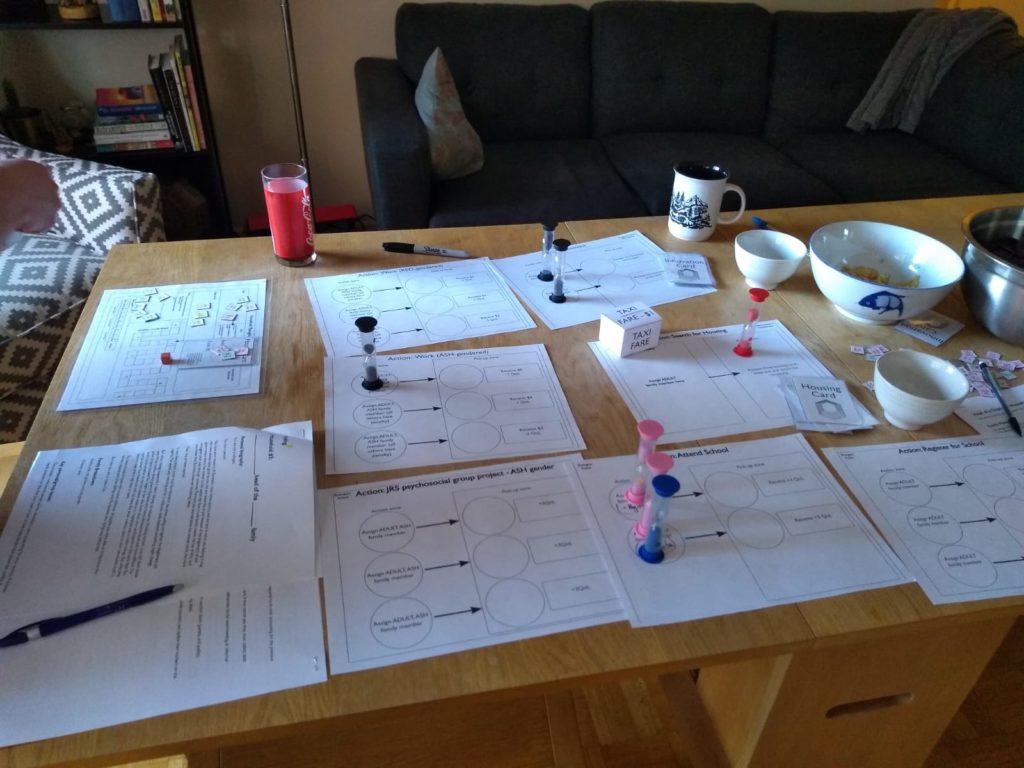
Several weeks ago, Lessons Learned hosted a test of “The Day My Life Froze”, a simulation for 15-25 participants which models the dynamics of an urban refugee response in a fictional country of first asylum.

In the full simulation, participant roles will include refugee heads of households, humanitarian aid workers, international donors, and members of local government. In this test, we did not fully implement all roles. Only one participant took on the role as the entire humanitarian team, and no international donors were included. This arrangement functioned well, demonstrating that the simulation can be effectively run for even small groups of people.

The test went very well. Participants extracted many of the desired lessons from the content, including the difficulties of maintaining their standards of living from before the conflict and displacement. Participants acting in the roles of displaced families struggled to manage time as a resource, having to choose whether to invest in registering with the United Nations for an uncertain host of benefits or to maintain their informal, insecure employment.

Overall, the economy of the simulation faithfully reproduced real-life experiences of some refugees. Participants tended to over-extend early in the simulation, having arrived with large savings, the need to secure housing quickly, and unfamiliarity with the local economy.

In the end, there were certainly a few challenges which have had to be addressed for the next revision. A few highlights:
- The tracking mechanism for “quality of life” allowed for an excessive “yo-yo” in families’ well-being. While well-being and vulnerability can certainly come and go quickly, the overall (simulated) experience of households had to be “smoothed out” over time with a new two-stage mechanism.
- Some actions had to be more balanced.
- Participants were confused by the taxi-payment mechanic, which needed solidification. When are taxi fares due, and in what circumstances? This had to be clarified in the rules.
- Our draft resource tokens were too small and similar to be easily handled or distinguished!
Overall, however, participants were very positive about the experience and reported that the simulation taught them new information about refugees’ lives and motivations. Further, participants reported “learning by doing”, with lessons emerging organically from the model.
Many of the learning objectives were emergent despite the fact that the simulation was not conducted with the suite of lectures designed to contextualize the material. This was in fact better than expected, as the adjoining lectures are specifically designed to support the learning objectives of the simulation.
See our previous post regarding the next test on February 23/24 at York University, with a revised simulation, larger simulation participant body, and one day of supporting lectures!
